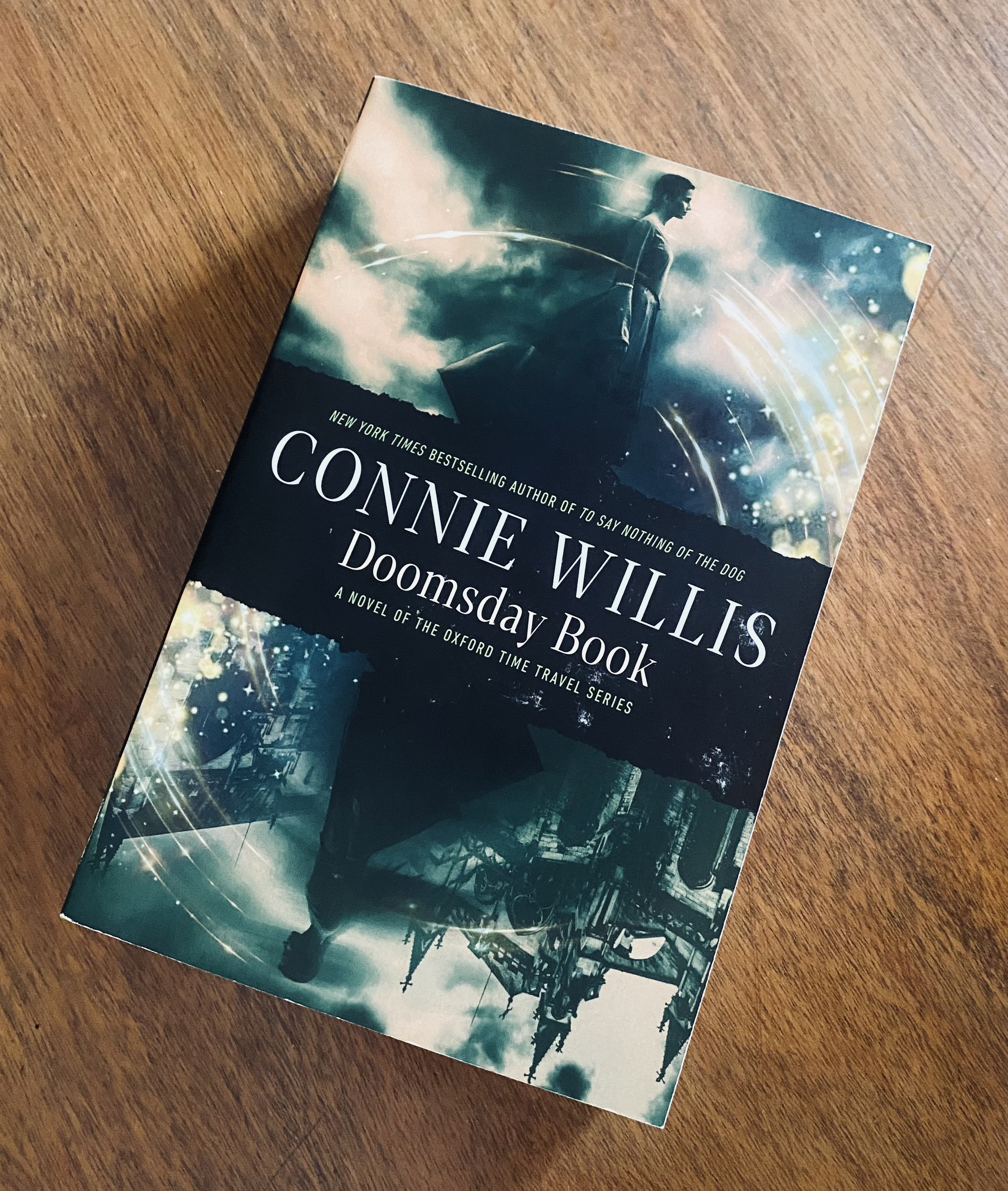Doomsday Book by Connie Willis: A Review
I don’t often post book reviews anywhere other than Goodreads, and I usually don’t write more than a paragraph. However, I recently finished a book that moved me more than any book ever has, so I decided on writing a thorough review and sharing that here. Without further ado, here is a review of Doomsday Book, by Connie Willis:
“I’m glad I came,” she thought. “In spite of everything.”
It’s extremely rare for me to pick up a book and lose track of hours as I read it. It’s even rarer for me to pick up a book that’s over 400 pages long, and to read a book without constantly checking how many chapters are left is rarer still.
Yet, somehow, from the first chapter, this book was so absolutely enthralling that I forgot about all of those things.
I went into Doomsday Book mostly blind. I’d heard about it years ago and added it to my “to-read” list, but never picked it up (because it’s nearly 700 pages, and as I mentioned before, books that long generally aren’t my thing). I finally got to reading it a few days ago and can’t believe I hadn’t read it sooner.
Doomsday Book is a slow burn story. Little by little, characters, details, and plot points are added and built upon. As other reviewers have mentioned, it is repetitive, but I don’t believe that repetition is without purpose, and it certainly isn’t a mistake. Through the slow, meandering build of the story for the first two-thirds of the book, there is a constant tension buzzing in the back of your mind, a feeling of stress that won’t go away, even in moments when things seem to take a turn for the better. You’ll get to know and fall in love with the complex, messy, lovable characters, and become more and more invested in both storylines and mysteries at play. Then, the final third of the book hits like a sucker punch, and all the details, parallels, and breadcrumbs come together in a way that is utterly devastating and completely spellbinding.
In Doomsday Book, Connie Willis manages to take one of the darkest periods in history and shines a light on people long forgotten and stories no one lived to tell. She parallels this with characters in the present, living through something similar, and facing difficulties and experiences that show that no matter how many ages have passed, humans are still just that: humans, with the same flaws, personalities, emotions, and struggles.
I found the construction of the book to be absolutely brilliant. The way certain themes and seemingly insignificant ideas weaved throughout the story all came together and held significance or plot importance (ie, Mary’s shopping bag, or the American bell ringers) was incredible. The prose was enjoyable, and the author drew out the tension in such a way that anytime I picked up the book, it was impossible to put down. But, more than anything, the heartbreak, the exploration of grief, of compassion, of the all too real struggles of faith and the human condition, absolutely blew me away.
Many reviewers point out the crises of faith woven throughout the book, of people struggling with their belief in God when it seems He allows destruction and devastation to run rampant. Struggling with faith is natural, and the emotions and questions the characters posed are relatable and real. But what moved me most was the resolution to this crisis found in the words of two of the characters:
“I feared that God would forsake us utterly,” he said. “…But in His great mercy, He did not,” he swallowed again, “but sent His saint unto us.”
“And I’m no use,” she said, wiping at her tears.
“Why do you weep?” he said.
“You saved my life,” she said, and her voice caught in a sob, “and I can’t save yours.”
“All men must die,” [he] said, “and none, nor even Christ, can save them.”
“I know,” she said. She cupped her hand under her face, trying to catch her tears. They collected on her hand and fell dripping onto [his] neck.
“Yet you have saved me,” he said, and his voice sounded clearer. “From fear… and unbelief.”
“It’s strange. When I couldn’t find the drop and the plague came, you seemed so far away I would not ever be able to find you again. But I know now that you were here all along, and that nothing, not the Black Death nor seven hundred years, nor death nor things to come nor any other creature could ever separate me from your caring and concern. It was with me every minute.”
I loved this book. I was in tears during the entire last third of it, and it’s one that I will be thinking about for a long time. It’s difficult to read, and heavy, but it’s an important book to read, and absolutely worth it.
In the words of the heroine, Kivrin:
“I wanted to come, and if I hadn’t, they would have been all alone, and nobody would have ever known how frightened and brave and irreplaceable they all were.”
